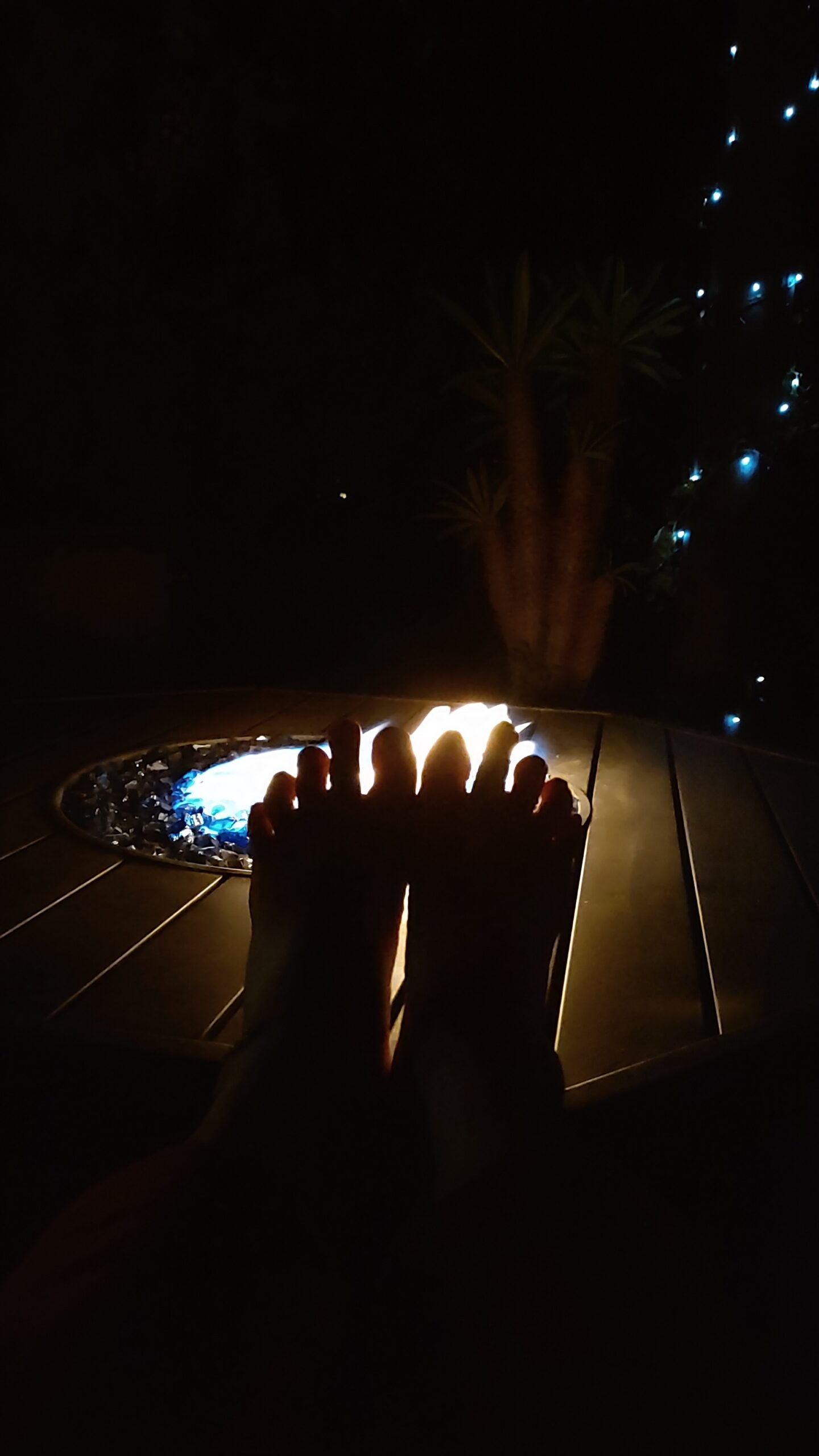More on building focus and improving our ability to concentrate by making small changes in our environment, such as leaving the smart phone in the other room, and changing reading habits.

RITA ® Award-Winning Author of Fantasy Romance

More on building focus and improving our ability to concentrate by making small changes in our environment, such as leaving the smart phone in the other room, and changing reading habits.



This week at the SFF Seven we’re talking destressing. We’re asking, “What’s one thing you do to keep (or reestablish) your equanimity when life is too much?”
That’s always the question, isn’t it?
It’s especially pertinent for me today because I’ve been stressing about whether I can get GREY MAGIC, book #3 in Bonds of Magic, written in time for release. See, I’ve known for a while that I wouldn’t make my original release date of December 20. Yes, the December 20 that’s nineteen days from this post. I made a deliberate choice there when Agent Sarah asked me to write more on a book she really wanted to take on submission this fall. “I’ll just postpone the release date,” I thought to myself. Then, yesterday, I was deciding what I should push the date to, as Amazon requires that we change the date at least five days ahead. Yes, that still gives me two weeks, but I wanted to get a feel for that – and if it means I also have to push the release of THE STORM PRINCESS AND THE RAVEN KING. (Reader: I do. Apologies! These things have a cascade effect…)
So, I was picking my ideal, least-amount-of-stress date when I realized: Amazon only allows us to push the date by 30 days. For those not wanting to do the math, that made the new release date January 19. At first I tried manipulating my schedule and wordcount goals, considering writing on weekends, which I normally take off to relax and refill the well, and then I realized that I would be incredibly stressed trying to do that. I ended up soliciting advice. My plan is to call Amazon and see if they’ll grant me dispensation to push both release dates out to a comfortable distance. Apparently they sometimes will, and I stand a good chance as I haven’t done this before. Wish me luck! And I’ll report back.
Fair warning: those dates I’ll be requesting are mid-February and mid-April, just to give myself plenty of room since I don’t want to have to try to change them again.
Onward to the actual topic!
Stress isn’t easy to combat, especially since it can be so insidious. Our neurological systems are built to constantly re-establish baselines, so we can be alerted to new dangers. This means we become inured to the presence of chronic stressors, in order to be aware of acute ones. In essence, we forget about the alligators in the watering hole that are always there, so we can be alert to the arrival of the tiger.
But only our conscious awareness “forgets” about the alligators. Our adrenal system is revved about those stinking alligators, punching up our nervous system every time we take a drink. For modern humans, our alligators are those constant concerns of our lives: money, health, family, deadlines, politics, etc. We think we’re not stressed about these things all the time because we’re used to it. Often it’s only when the stress relents that we become aware of its absence – with sheer, blessed relief.
For me this means being proactive. I make an effort to combat stress even when I don’t feel particularly stressed. What do I do?
1) Take deep breaths. I know this may feel like hackneyed advice, but really is the best. Studies have shown we hold our breath when reading emails or when social media notifications arrive. By reminding myself to consciously and conscientiously breathe deeply, I release and fend off stress.
2) Speaking of email and social media notifications, I silence as much as possible. All those pop-ups, pings, and badges? Turn them off! Very little needs our immediate attention. For email, I try to confine my engagement with it to once a day. Much like the paper mail. I treat it like it arrives once and I read and respond then.
3) I try to be kind to myself, doing those things that others have mentioned here. Yoga is great, not only for the energy realignment and breathing (!), but also because it makes me step away from the phone and computer for an hour and be only in my body. Being outside works for this. Long walks. Reading in the sun. Unplugging and focusing on non-monetized creative tasks.
What do you all do to destress?



I mentioned on my podcast – First Cup of Coffee with Jeffe Kennedy – just about two weeks ago, that I’d read this very interesting article on how starting the day by looking at the internet changes how your brain functions. The author specifies going for three hours before looking at the internet, which I realize not everyone can do. Many people start their jobs within three hours of waking up and those jobs may specifically require checking email or company social media.
But for many of us… do we HAVE to look at those things within three hours of waking?
And I’m not saying it has to be like this author frames it. Not everyone has the luxury of spending the first three hours of the day meditating, quietly reading, or journaling. Sure, it sounds lovely in theory, but most of us don’t lead monastic lives. I don’t think it’s necessary anyway.
If a person, say, wakes up at 6 am, does the grooming/hygiene thing, maybe eats breakfast or has a hot beverage, could be getting other people ready for their days, perhaps some exercise, likely a commute to the job, then settling in – that’s usually about two hours, right? I mean, I know more than once in college I woke up at 7:30 and still made it to an 8 am class, but college students are not famed for their grooming, nutrition, or good planning. For someone a bit less subject to chaos and late nights than a college student, it seems that arranging a morning to allow for three hours before checking email and social media is entirely a possibility.
It would mean not checking email on the phone while sitting on the subway, and ignoring Twitter until later in the day. It means Facebook instant messages go unanswered for *gasp* maybe a whole twelve hours!! (Seriously – it pisses me off that Facebook tries to shame me by displaying how long it takes me to reply to messages on my author page, encouraging me to respond faster to earn some fucking badge like I care for their rewards. *ahem*) I’m not saying it’s easy to break this habit, especially when these internet companies are hugely invested in training us to look All The Time. I’ve turned off all of my notifications on my phone, and I can’t tell you how often they prompt, then try to command and trick me, to turn them back on. If they want that so badly, we have to know it’s not for OUR benefit.
I’ve been thinking a lot about the Time Before the Internet (TBI) and how different the flow of my attention was. And let me be clear: I love what the internet has brought to my life and to the world. Through social media and online groups, I have made many, many lasting friendships, kindred spirits I very likely would never have encountered otherwise. That’s a *huge* thing. As is the flow of information and sharing of important events. But, I’m not a fan of the way I’ve arranged my schedule, thinking, and life to accommodate the internet’s demands for attention.
One thing about the TBI, which closely predated cell phones (at least affordable ones normal people could actually carry around), was that no one expected us to be instantly available. I remember when email became widely used and my older boss commented that it used to be you’d send out a paper and could count on a week or two of it being off your plate before comments arrived in the mail. With email, that buffer time shortened to a day or two – or less. Now we have Facebook exhorting businesses to reply within an hour – or less. In some ways this decreased latency has helped productivity, but I can also see how it forces me into a responsive mode. If I let it, the internet could have me in a constant battle to respond to messages and notifications.
In that state, when I do produce work of my own?
So, I’ve been trying this. I wake up between 5 and 6 am, do the hygiene thing, feed the cats, exercise (which means some reading), record my podcast or write a blog post, and then I go straight to writing. This means I can’t post the podcast or blog to social media until later in the day, but oh well. Does it really matter what time those things post? I don’t think so.
The result has been astonishing. I’ve been getting my 3,000 words done before noon most days. Then, when I’m done and switch over to business, I get through email much more efficiently than before. I go from one task to the next: post my stuff, answer emails, reply to Facebook messages, reply to tweets. Work on other business.
People: I can feel the difference in my brain. My concentration is vastly improved. The book is flowing well. And when I do face the business tasks, those much-dreaded tasks that tend to slide down my To-Do List are actually getting done.
Highly recommend trying this, however you can make it work. No monastic existence necessary
.